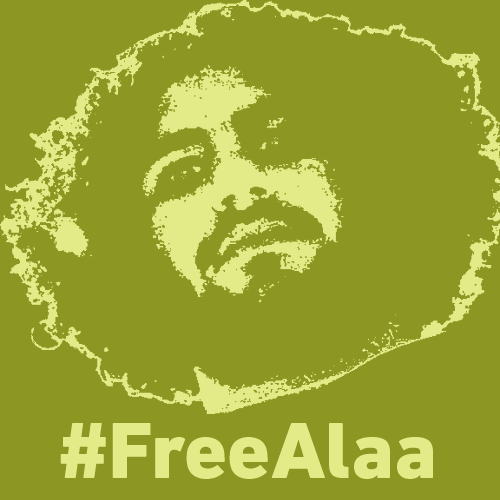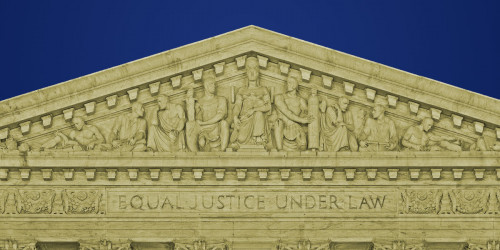
EFF is shocked and dismayed by the 15-year jail term handed down today in absentia to Egyptian blogger and activist Alaa Abd El Fattah and 24 other co-defendants, on charges of unlawful protest and attacking a police officer. The judgment was not expected to be made until 10am, but proceedings began at 9am.
The ruling against the 25 defendants was made in absentia, despite the fact that several of them were waiting outside to enter the court. According to a report from Mada Masr, Abd El Fattah’s family has stated that they believe the defendants were “purposefully prevented from entering the court in order to issue a ruling in absentia, and to treat them as though they had fled, despite attending all previous court sessions.” The family is demanding a re-trial.
Abd El Fattah and two co-defendants, Mohamed Noubi and software developer Wael Metwally, were arrested outside of Tora Prison this morning in Cairo as they awaited permission to enter the court.
Alaa Abd El Fattah’s case is emblematic of Egypt’s reversion to authoritarianism, and shows how those who fought to defend and promote free speech in order to criticize both the old regime and the new, have now been targeted for retaliation. One of defense lawyers for the group, Mohamed Abdel Aziz told reporters that their conviction is the most severe known under the country's new Protest Law. Al Jazeera reporter Abdullah al-Shamy has been imprisoned for more than 300 days, and is currently being held in solitary confinement. Mahienour al-Masry, an activist and writer, is currently imprisoned under the Protest Law. She recently penned a letter from prison highlighting the many individuals forgotten in the system:
Our pains compared to theirs are nothing, as we know that there are those who will remember us, say our names from time to time, proudly mentioning how they know us. Instead, these women, who deserve to be proudly remembered, will only be mentioned at most in family gatherings.
As we fight for Alaa’s freedom, it’s important that we remember that he is one of many caught up in the Egyptian government’s attempt to assert powers. Alaa set an example for how the Internet could be used to organize and exercise free speech: Egypt's leaders should not be permitted to make an example of him to silence others.
Alaa's supporters are using the hashtag #FreeAlaa to raise awareness of his case. You can also use one of these icons on your Twitter or Facebook profile to show solidarity.















